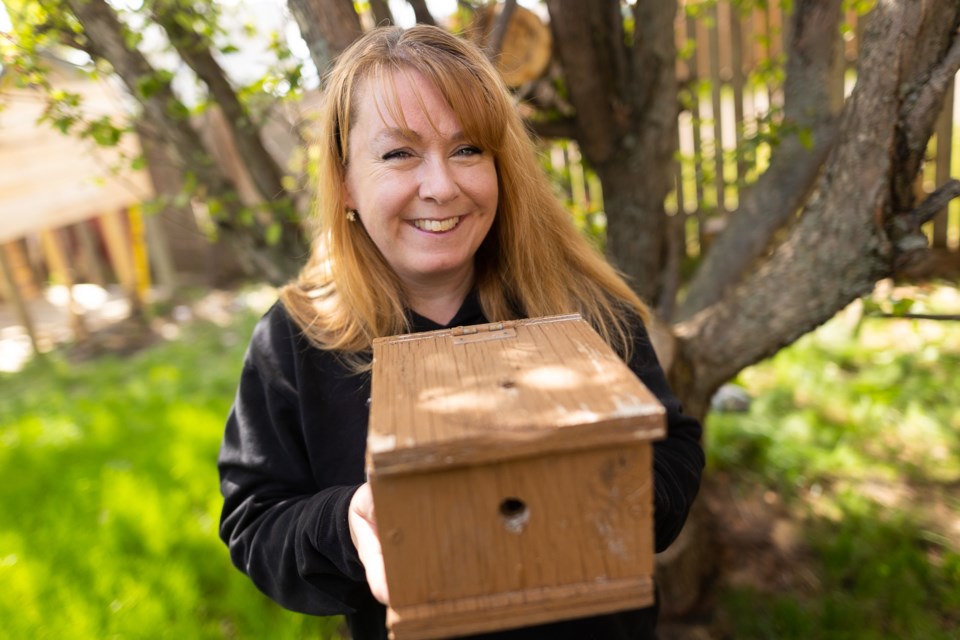A Turner Valley bee specialist is aiming to educate Albertans on the importance of pollinators.
“It’s just all about these native bees and all the things you can do to encourage them to come and nest in your yard, and all the fun you can have watching them,” said Alexandria Farmer, who teaches ecology and biology at Mount Royal University.
During Pollinator Week, June 21-27, Farmer and other members of the Alberta Native Bee Council will be hold online talks and promote other activities to raise awareness about native bees and what residents can do to promote healthy native bee habitats.
The council was co-founded by Farmer and her friend Megan Evans, who both hold master’s degrees in pollination ecology.
“We found there just wasn’t enough understanding,” she said, adding people often don’t discern between native species like bumblebees and the non-native European honeybees.
“There’s a real big campaign to save bees, but a lot of times people aren’t thinking of the right bees.”
She pointed out that while people are often shocked at the size of bumblebees early in the season, those are mostly queens, who are just beginning to start a colony by June.
“Soon we’re going to start seeing more and more workers out,” she said.
The council aims to promote the importance of plants, garden fixtures, and practices friendly to pollinators such as the native bumblebee.
“That’s the biggest thing really, food and nesting habitat,” Farmer said. “Even things like having part of your yard that you let go kind of natural or letting a patch of native plants take over.
“Early spring flowers are so important to them, especially good pollen producers, and then having food available to them right through the fall into September so they can complete their season.”
The relationship is symbiotic, as pollinators are beneficial to gardens as a whole.
“I plant my vegetables in with flowering plants, because you’re attracting more and more pollinators,” she explained. “The more pollen load a bee provides to your plants, like tomatoes, the bigger the fruit you get.
“You need pollinators to do that.”
Providing a small home to colony-forming bees, similar to a birdhouse, is another way to give them a leg up.
Throughout Farmer’s garden are several small wooden boxes filled with raw cotton and a removable top to clean at the end of the season.
An 18mm hole is drilled in the front—any larger, Farmer cautioned, and rodents could take over the prime nest.
In addition, she also began using pieces of logs and other wood a bee would be naturally inclined to use.
While commercially produced “bee hotels” and other similar artificial habitats have gained popularity in recent years, Farmer said she discourages purchasing most as they may not actually be adequate for native bees.
“A lot of times those are ones that you can’t access to clean out, they’re too short, or there’s just things that are of no use to bees,” she said. “So a lot of those are just a bit gimmicky.”
The ANBC website, she added, provides information about proper bee hotels.
Farmer is slated to give a talk titled Beekeeping Gone WILD hosted online by the Town of Okotoks at 6 p.m. June 23.
Information about talks and events by Farmer and other specialists, such as wild bee ecology research scientist Dr. Jess Vickruck, can be found on the Alberta Native Bee Council’s Facebook page.
Information on tips, ideas, and project to help and coexist with native bees can be found at albertanativebeecouncil.ca.




